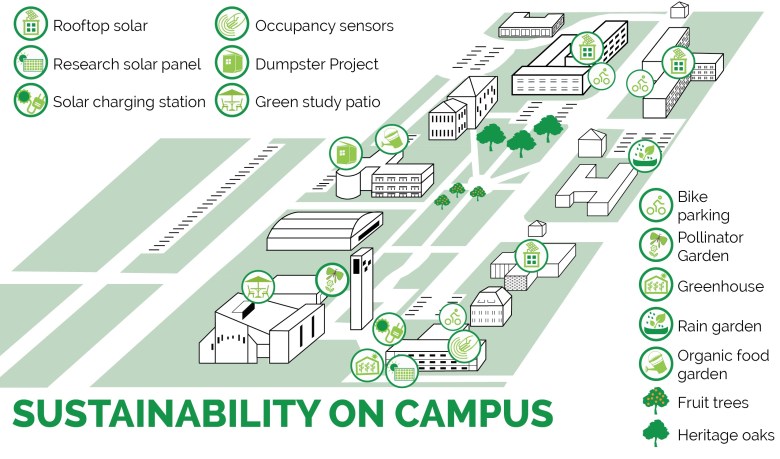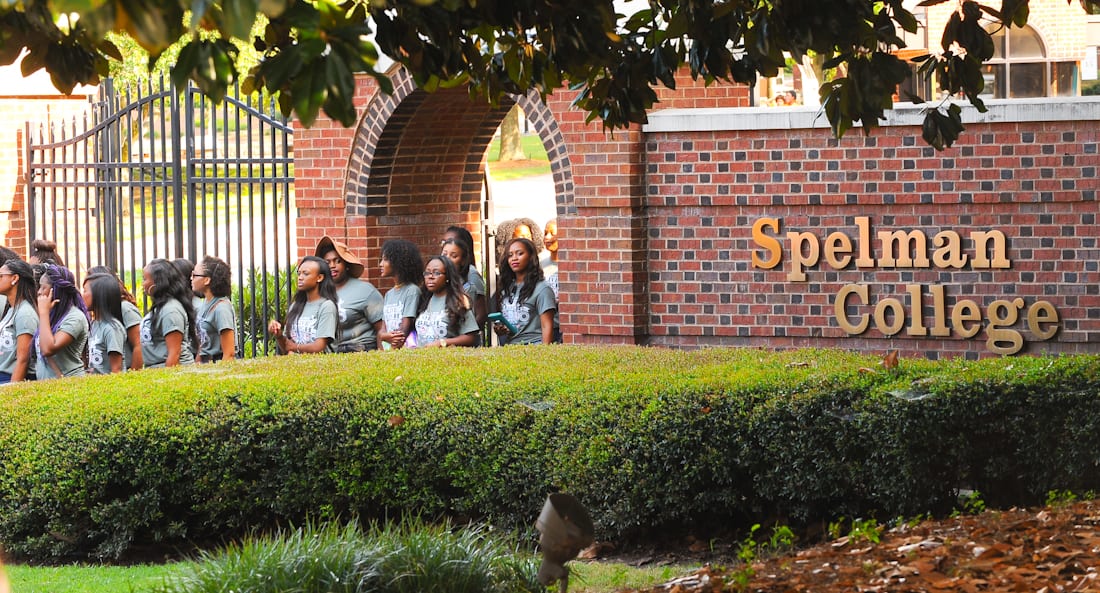|
Listen to this article here
Getting your Trinity Audio player ready...
|
A recent survey conducted across 20 Historically Black Colleges and Universities indicates a positive trend toward sustainability.
The HBCU Climate Action Blueprint from the United Negro College Fund outlines current sustainable practices utilized at Black colleges and future aspirations for climate justice. Even with a lack of consistent funding, HBCUs have set a high standard for sustainability in the classroom.
Sustainable Statistics
According to the study, 85% of participating colleges have implemented green programs. Some of these initiatives include improvements to curriculum, forming student-led groups, and installing solar panels. They have also centered nature by advocating for more bike/walking trails and creating community gardens. Half of the surveyed schools offer degrees or certifications in sustainability-focused fields.
Additionally, 40% of responding schools believe that climate and sustainability-focused initiatives are extremely important. Similarly, concern about the climate is common among all age groups of Black Americans. A poll from Citizen Data found that 88% of Black voters are concerned about climate change to some degree.
All of the responding universities have embraced sustainable dining practices. This includes programs like tray-less dining, composting food waste, donating excess food to food pantries, and sourcing organic/locally grown produce.
Food waste is a major contributor to greenhouse gas emissions. According to the EPA, 58% of methane emissions come from rotting food waste in landfills. Sourcing locally grown produce can cut down on carbon emissions by shortening the distance from farm to table.
“Food sovereignty is a critical aspect of environmental justice, and HBCU contributions help build community resilience, reduce food apartheid, and ensure that communities have greater control over their food sources,” Alexa White a climate fellow from the University of Michigan, said in the report.
Related Stories
Stagnation of Funds
Despite significant interest in establishing sustainable programs, only 15% of the surveyed universities have budgets specifically for green initiatives. It also shows that 40% of participating universities haven’t seen an increase in funding for green initiatives in recent years.
This hasn’t slowed down the progress of student-led proposals. At Huston-Tillotson University they’ve installed rooftop solar panels that contribute 8-10% of the energy used on campus.

Lane College is among the 85% of schools that have launched programs to convert energy-intensive technologies into energy-efficient ones.
Recently, the Biden Administration through the EPA has allocated funds to further the mission of environmental justice. With support from the Thriving Communities Grant Program, the Deep South Center for Environmental Justice created the HBCU climate change consortium. This newly formed alliance aids student-led research and advocacy.
Realizing a Green Future
With a legacy of community activation, HBCUs are uniquely positioned to propel sustainability standards.
A quarter of responding universities have established a formalized sustainability plan. Additionally, another 35% are planning or discussing a plan.
Blythe Coleman-Mumford with Second Nature said in the report, “Spelman College has had a climate action plan with Second Nature since 2010, a progressive time to be planning and implementing this work. It shows that HBCUs have been committed to climate activism, even before it was a more mainstream discussion.”
80% of the universities engage in furthering community-based education on climate change and sustainability. This encompasses conferences, festivals, and engagement campaigns that are open to the public.
Detailed in the report is a call to action for HBCUs to develop climate hubs. The idea behind a climate hub is to establish a coalition between minority-centered institutions and local organizations. Waverly Street Foundation believes partnerships between marginalized groups and community-based organizations are critical to advancing climate strategies. The foundation has committed $32 million to supporting climate action hubs.
“Collaboration between HBCUs and local grassroots partners brings a sharper focus to climate challenges and solutions, and clears pathways for community-led climate innovation,” said Senior Program Officer of Waverly Street Foundation, Alexandria McBride.
The Overarching Message
In summary, community engagement along with centering marginalized voices is an integral part of advancing climate solutions. HBCUs have a proven track record of successful programs that enact change at the campus level. Activating communities to take control of their futures is widespread among HBCUs and contributes to a collective standard for sustainability.
“HBCUs are positioned to lead the nation and the world in a just transition to a greener and more equitable future for all,”UNCF CEO Michael Lomax said.


